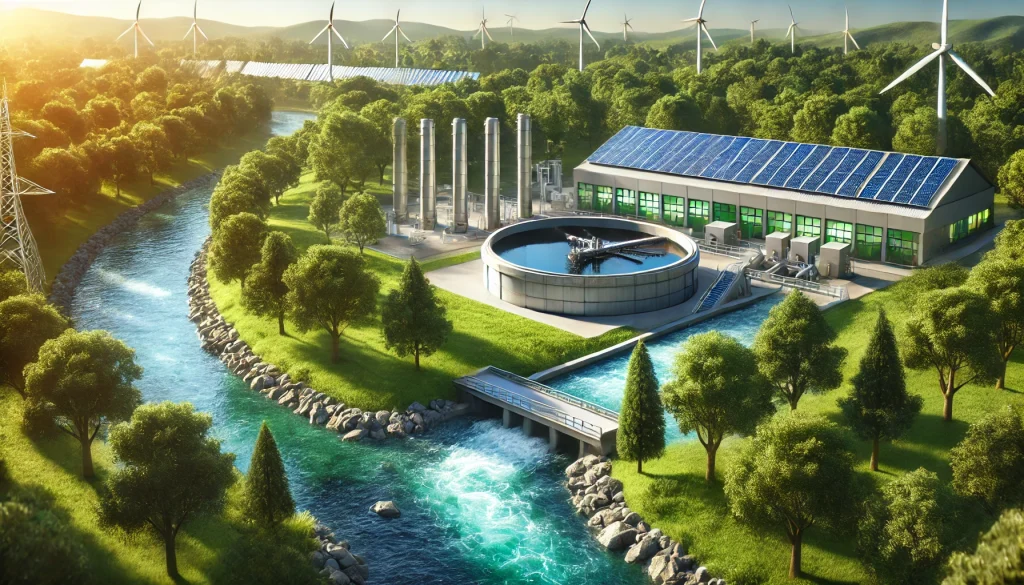Understanding Wastewater Emissions
Wastewater treatment is essential for maintaining clean water. However, it also contributes to greenhouse gas emissions. These emissions arise from the energy used and the biological processes involved.
Adopting Energy-Efficient Technologies
One of the most effective ways to reduce emissions is by adopting energy-efficient technologies. Modern equipment consumes less power, leading to fewer emissions. Upgrading energy-efficient pumps, motors, and aerators can significantly reduce energy use.
Implementing Renewable Energy Sources
Using renewable energy sources can also help in reducing emissions. Solar panels, wind turbines, and biogas from the treatment process can provide sustainable power. This reduces reliance on fossil fuels and lowers the carbon footprint.
Optimizing Operational Processes
Optimizing operational processes is crucial. Facilities can minimize energy consumption by fine-tuning aeration, mixing, and other water treatment stages. Regular maintenance ensures equipment runs efficiently, further reducing emissions.
Enhancing Biological Treatment Methods
Enhancing biological treatment methods can also be beneficial. Advanced microbial treatments break down pollutants more effectively, reducing the need for energy-intensive chemical treatments.
Utilizing Advanced Monitoring Systems
Advanced monitoring systems can track and control emissions in real-time. These systems provide data to optimize processes, ensuring minimal emissions. Continuous monitoring helps make informed decisions quickly.
Promoting Water Reuse and Recycling
Another key strategy is promoting water reuse and recycling. Treated wastewater can be reused for irrigation, industrial processes, or drinking water. This reduces the demand for freshwater, conserving resources and reducing emissions.
Engaging in Community Awareness Programs
Engaging in community awareness programs is essential. Educating the public about reducing wastewater emissions can lead to more sustainable practices. Community involvement ensures a collective effort to minimize emissions.
Conclusion
Cutting emissions from wastewater treatment is vital for environmental sustainability. We can significantly reduce emissions by adopting energy-efficient technologies, using renewable energy, optimizing processes, enhancing biological treatments, utilizing advanced monitoring, promoting water reuse, and engaging communities. These efforts contribute to a cleaner, greener future.





